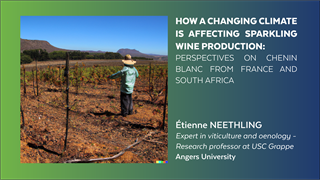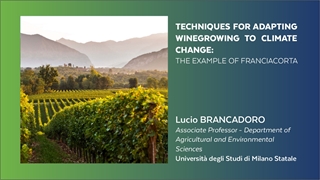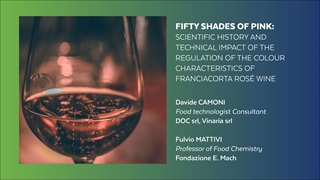Exploring the impact of grape pressing on must and wine composition
Presented by
Description
The pre-fermentative steps play a relevant role for the characteristics of white wine. In particular, the grape pressing can affect the chemical composition and sensory profile and its optimized management leads to the desired extraction of aromas and their precursors, and phenols resulting in a balanced wine. These aspects are important especially for must addressed to the sparkling wine as appropriate extraction of phenols is expected being dependent to grape composition, as well.
Even if the winemakers are conscious of the impact of pressing, to the best of our knowledge, a gap exists regarding grape composition – pressing conditions – must and wine composition. This research aimed to fulfil this gap by clarifying the impact of grape pressing based on both grape and must composition.
The overall wine production chain was followed, from grape to the production of sparkling wine.
The results obtained till now revealed the relevant variability of grape composition, as first. The management of the pressing step and, consequently, the must fractioning can be more accurate if the phenol-related indexes can be considered in addition to the chemical parameters. Such aspects can also limit the must and wine correction with implementing the sustainability of the wine industry and the precision enology.











